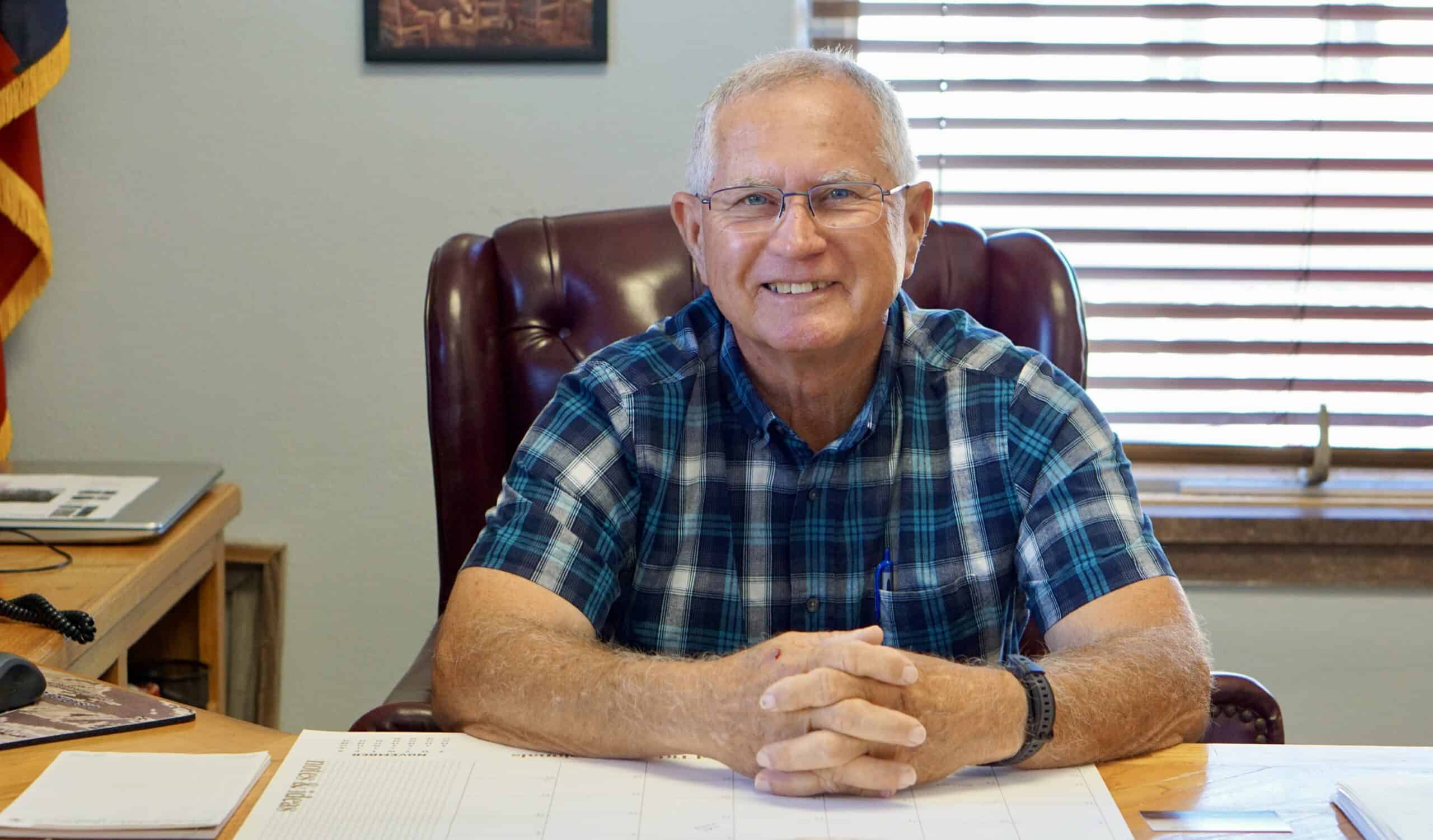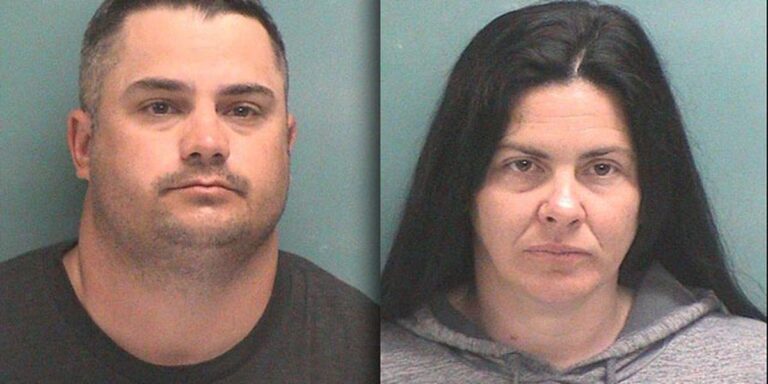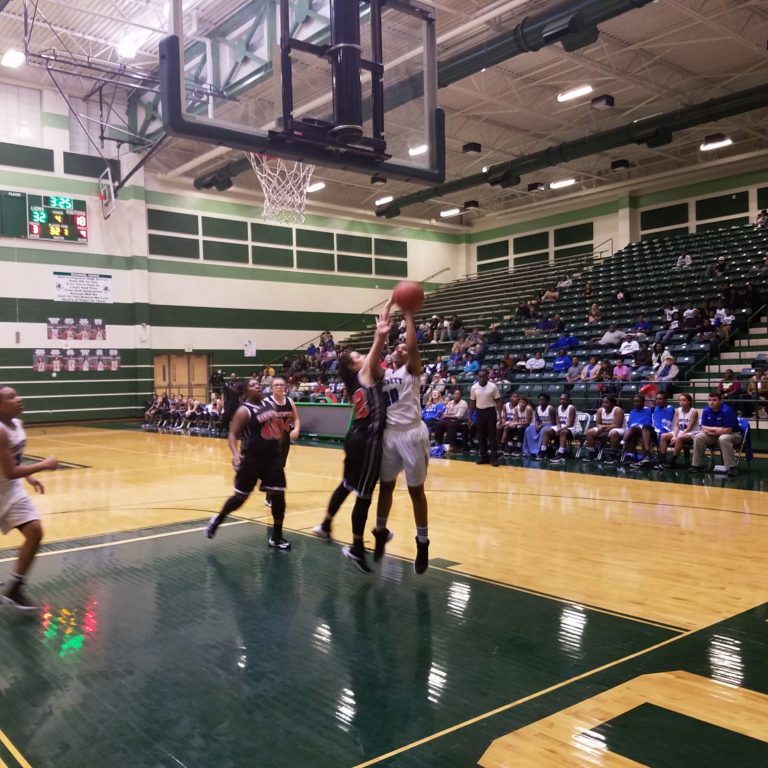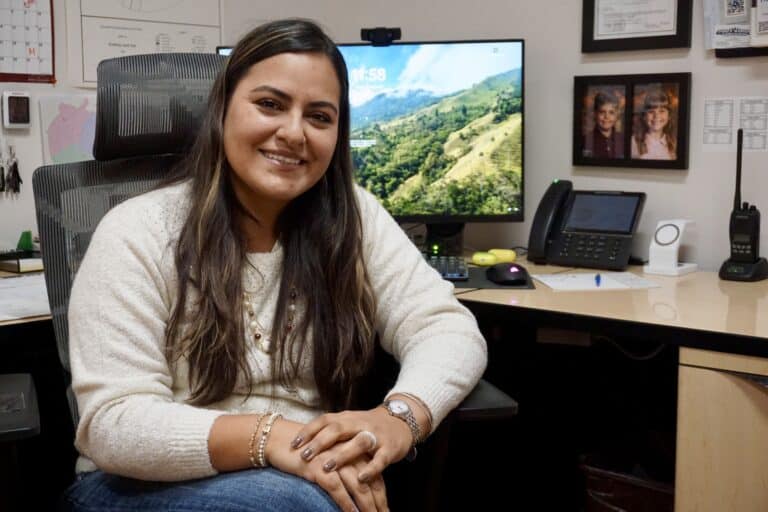Justice of the Peace Judge Jordan Tells Best/Worst Parts of Job

By Greg Ritchie
Messenger Reporter
HOUSTON COUNTY – In January, Houston County Justice of the Peace for Precinct Two Ronnie Jordan will complete 12 years on the job. This will be his third race unopposed – although Jordan himself is not sure if it is because of the faith people have in the job he is doing – or because no one else wants the job.
Precinct One Justice of the Peace Clyde Black will be retiring at the end of this year, and the election campaign is in full swing. Republican Mike McCreight and Democrat Kevin Johnson are both vying for the job. Thursday, Oct. 6 there will be a candidates’ forum hosted by the Crockett Area Chamber of Commerce at the Crockett Civic Center at 6 p.m.
The Messenger was able to catch up with Judge Jordan before the event to find out more about the man, and the job of justice of the peace.
“I was born and raised here in Houston County. And like most people my age, moved away, came back and raised my family here,” Jordan said. It was during that time period and
after I came back home – I always had a passion for law enforcement. Actually, I wanted to be in law enforcement when I was just a child.”
Jordan served in law enforcement for over 20 years, finally retiring in 2010 as the Chief Deputy at the Houston County Sheriff’s Office. Jordan never saw himself working as a justice of the peace (JP), but when the opportunity arose – he decided to go for it.
“This was actually not an ambition of mine,” Jordan noted. “I love law enforcement. I love what I did as the chief but there came an opportunity – they told me they would need a new JP since the other one was retiring. And so I was approached about it and prayed about it. I talked to my wife and decided to run.”
Jordan did not then quite know what he was getting himself into.
“You have to go to a new judge’s school, which is 80 hours for new judges. They let you know all the things you can go to jail for if you if you do it wrong,” Jordan laughed.“And whenever we went to those schools, it was pretty overwhelming actually, with what we needed to know. Even after 11 years, a case will still pop-up here every now and then, that we have not dealt with. So I start my research and I love to research.”
Jordan enjoys the work, even though there are parts of the job he wishes sometimes he did not have to perform.
“We do a lot of evictions. And some evictions are hard for me to make that decision because sometimes people are just down on their luck. They have had illnesses or just having a hard time. We have done literally 1000’s of inquests over that time period and and they are never easy. Sometimes it may be someone you know, maybe for a long time.”
In the end, Judge Jordan takes solace in his faith and the guidance of a higher power.
“God gave me the job.” Jordan said. “And that’s one thing I believe anyone in any position is there because God allows it. When He doesn’t want me to be here anymore, I won’t be. It won’t matter what I do or don’t do. I just won’t be here.”
Judge Jordan does not mind the difficult calls – that is a big part of the job.
“Sometimes you get that call, right?” Jordan said. “Whenever you’re fixing to have supper or whatever – but my wife always reminds me, ‘You knew the job when you took it!’ That’s true.”
Jordan would not provide any specific advice to the two candidates, only that the job is never what he – or they – would expect.
“I thought my background was going to really help me in this job. When in fact, it really doesn’t,” Jordan explained. “It does give you an advantage on the criminal side with affidavits and things like that because of the things law enforcement writes for the judge. So that aspect helps. What they will have to learn is that they are a neutral person now. And they have to leave that background of law enforcement over there. We have to tell law enforcement: we are a neutral party here. We are not for you, we are not against you. Our job is an impartial one and it is not personal at all. That is one thing they will have to learn. You have to learn to be neutral. And sometimes it’s sometimes it’s hard to be neutral sometimes.”
Judge Jordan prides himself on being as impartial and neutral as possible with the cases that come before him. He knows most people are good – even when they find themselves in a bad situation, with a bad crowd, on a bad day.
“They’re not bad people. They just made a bad choice,” Jordan concluded. “And so you really want to try to help those people to get on with life and not let a bad decision keep them down. I do try to encourage people a lot that I come in contact with me. ‘I know – I know they are not bad – they just made a bad choice. And they probably will not make that choice again. You hope they won’t.”
Greg Ritchie can be reached at [email protected]






